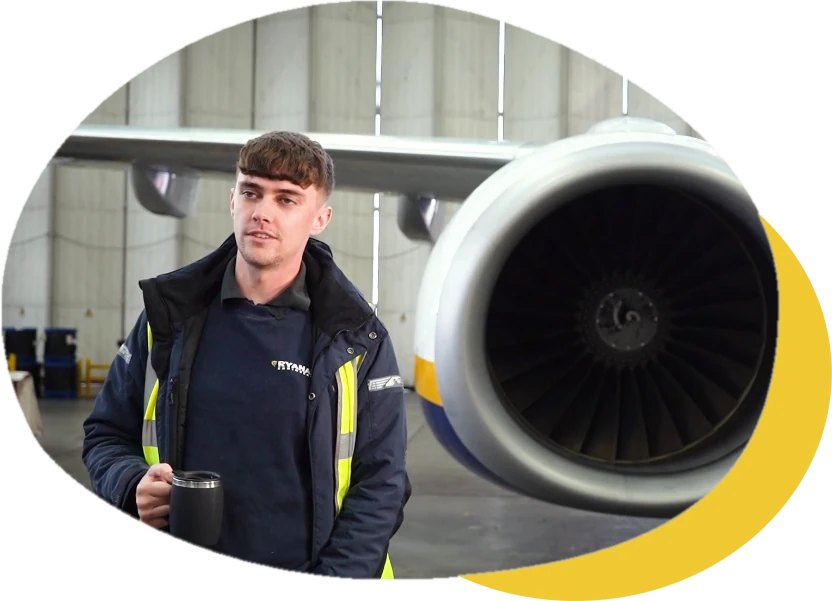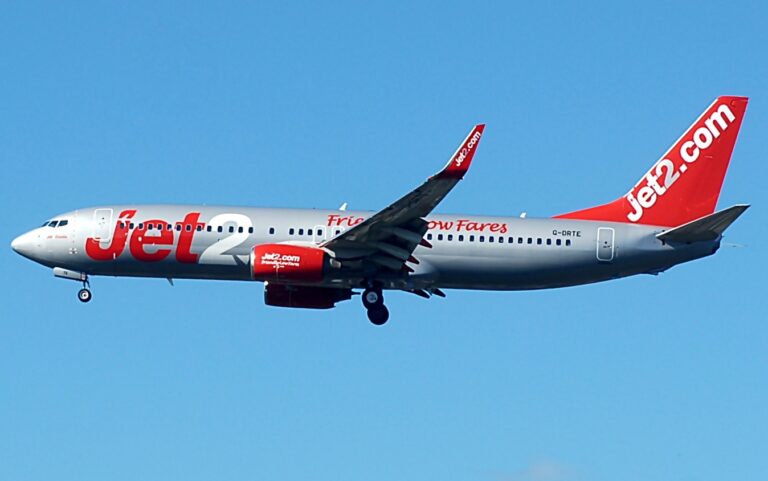Fatal Workplace Accident: Ryanair Employee Sucked Into Engine While Working at Dublin Airport
Fatal Workplace Accident: Ryanair Employee Sucked Into Engine While Working at Dublin Airport
Dublin, Ireland – A tragic accident at Dublin Airport claimed the life of a Ryanair mechanic earlier this week, as the employee was sucked into the engine of an aircraft while attempting to retrieve a tool during routine maintenance. The horrifying incident, which occurred on the tarmac near one of the airline’s grounded aircraft, has left the aviation community shocked and mourning the loss of a dedicated worker.
The Incident
The accident took place on the morning of May 4, 2025, when the Ryanair employee, whose identity has yet to be officially released, was performing scheduled maintenance on an aircraft at the airline’s designated ground handling area at Dublin Airport. According to preliminary reports, the mechanic was working near the aircraft’s engine when he attempted to retrieve a tool that had fallen into the vicinity of the engine intake. In a tragic turn of events, the mechanic was inadvertently drawn into the engine, which was still running at low speed as part of routine checks.
Witnesses to the event were immediately horrified, and emergency services rushed to the scene. The Ryanair ground crew and airport safety personnel acted swiftly, attempting to rescue the worker, but despite their best efforts, the mechanic was pronounced dead at the scene. The circumstances surrounding the accident have raised numerous questions regarding airport safety protocols and the measures in place to ensure such tragic incidents are prevented.
Investigations Underway
As is standard protocol for accidents of this magnitude, an investigation has been launched by the Irish Air Accident Investigation Unit (AAIU). Representatives from the AAIU were seen at the scene shortly after the incident, with initial reports suggesting they would focus on a thorough examination of the airport’s operational safety procedures, as well as the specific circumstances surrounding the incident.
“We are deeply saddened by this loss. The safety of our employees is of paramount importance, and we will cooperate fully with the investigation to understand exactly what happened and ensure such a tragedy never occurs again,” said a Ryanair spokesperson in a public statement.
The spokesperson also confirmed that the airline is providing support to the worker’s family and colleagues during this incredibly difficult time. “Our thoughts and deepest sympathies are with the family, friends, and colleagues of the deceased. We are doing everything we can to support them as they process this unimaginable loss,” they added.
Impact on Ryanair and the Aviation Industry
This fatal accident has sent shockwaves through the aviation industry, where the safety of ground crew members is a critical concern. Although such incidents are rare, they serve as painful reminders of the dangers that workers in aviation and ground services face daily. Mechanics, engineers, and ground staff are essential to the smooth operation of any airline, and their safety should always be a top priority.
Ryanair, one of Europe’s largest low-cost carriers, has long been known for its efficiency and rapid turnaround times between flights. However, the fast-paced nature of the airline’s operations can often lead to tight schedules, which places additional pressure on employees. This fatal accident has prompted calls from industry experts for a review of ground operations and better enforcement of safety standards.
One prominent aviation safety expert, who wished to remain anonymous, expressed concern about the current safety measures in place at airports like Dublin. “While accidents like this are rare, the fact that an employee was working so close to an engine with no clear protective barriers in place raises serious questions about safety procedures. We must ensure that all personnel, from ground crew to engineers, are working under safe conditions where the risks are minimized to the greatest extent possible.”
Workplace Safety in Aviation: The Need for Change
This tragedy is a reminder of the importance of strict workplace safety protocols in all sectors, but especially in high-risk industries such as aviation. The circumstances of this incident raise crucial questions about the balance between operational efficiency and worker safety. With high-stakes schedules and tight turnarounds often dictating operations, the well-being of those on the ground must not be overlooked in favor of speed.
Accident prevention measures in aviation are typically multi-faceted, involving everything from comprehensive training and safety equipment to emergency response preparedness and clear communication procedures. It is expected that this investigation will result in recommendations to improve safety measures in a way that better protects ground crew members while also ensuring the continued efficiency of airline operations.
Many industry insiders have pointed out that while Ryanair has maintained a relatively strong safety record, it must now focus on reassessing and potentially improving the safety measures for ground personnel. This could include stricter enforcement of working distances from live engines, the introduction of additional safety barriers, and even an evaluation of the training provided to employees who work in close proximity to aircraft engines.
A Devastating Loss for the Ryanair Team
In the wake of this devastating incident, Ryanair employees have expressed their shock and sadness. Colleagues of the deceased mechanic have described him as a dedicated and hardworking individual, someone who took pride in his role with the airline. The loss of a co-worker in such a horrific manner has left a deep emotional toll on the team, and many have praised the company for providing counseling services to help employees cope with their grief.
The incident also highlights the vital role of ground crew members in the airline industry. Without the meticulous work of maintenance technicians, engineers, and ground staff, flights would not be able to take off on time, and passengers would face considerable delays. While much of the public attention in aviation tends to focus on the pilots and flight attendants, it is the often unseen work of those on the ground that keeps the aviation industry running smoothly.
Conclusion
The tragic death of the Ryanair employee at Dublin Airport serves as a somber reminder of the risks faced by aviation workers every day. As investigations into the incident continue, the aviation community, along with the airline itself, will need to take a hard look at how ground operations can be made safer to prevent such accidents from happening again. The industry must come together to ensure that the safety of every employee, particularly those working in high-risk environments like near running engines, is a top priority.
As Ryanair and the wider aviation industry continue to process this heartbreaking loss, the focus will no doubt turn to ensuring that the lessons learned from this tragedy will lead to meaningful changes in workplace safety standards, so that no other worker has to face the same fate.






